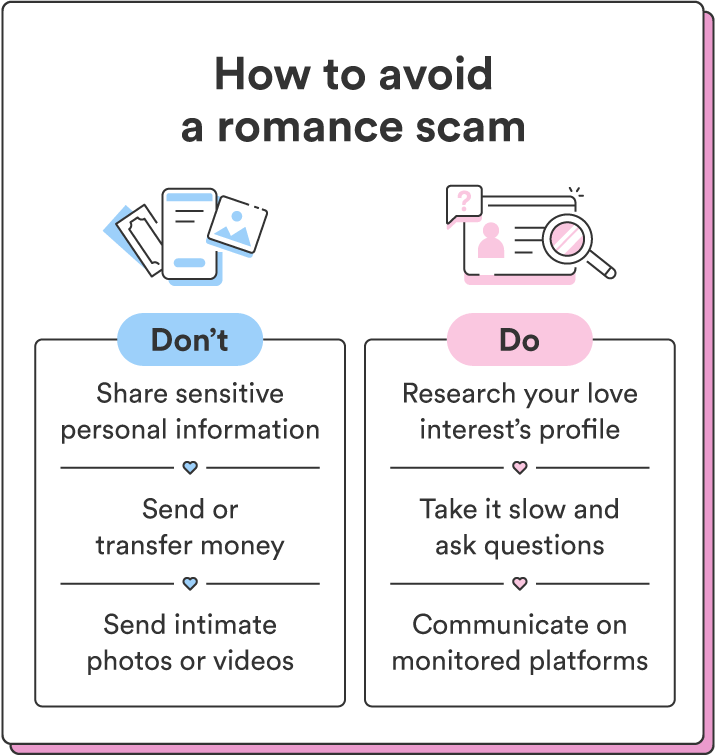Becoming a victim of a romance scam is both scary and devastating – especially when you thought you made a genuine connection with somebody who turned out to be a scammer. If you feel like the person you’re talking to is scamming you, it’s best to know how to protect yourself.

1. Don’t share personal information
Never share your bank account details, credit card numbers, Social Security numbers, addresses, account passwords, or ID information online or with a new love connection. A potential romantic partner shouldn’t need or want this information unless they have fraudulent intentions.
2. Don’t send or transfer money
If you’ve only communicated with someone online or by phone, you should never send money online, including gift cards or wire transfers, no matter the reason.
You also should never trade or invest money based on the advice of someone you have only met online. As mentioned above, scammers will often ghost you after receiving the money they asked for.
Scammers may also ask you to open an account or move money on their behalf, selling you a sob story and asking you to interact with bank personnel for them. This can lead to criminal charges for you – avoid handling money for online connections in any context.
3. Never send compromising photos or videos of yourself
Your online love interest may try to blackmail you using intimate phones or videos they’ve requested from you. Don’t send intimate photos of yourself to anyone you’re just talking to online. Blackmail is a form of financial abuse, and you should take action immediately if this happens to you.
4. Research the person’s photos and profile
Do an online search to see if the image, name, or details on someone’s profile have been used elsewhere. You can start by doing a reverse image search on Google to see if the photos appear in other places or under someone else’s name. You can also use background searching services, but these services charge a fee and may not always get complete results.
5. Go slow and ask questions
Scammers often try to rush relationships and pressure you into doing something for them. Always use your best judgment, and move at a comfortable pace. Don’t be afraid to ask specific questions about their lives to see if their stories are consistent. If you notice inconsistencies, call them out on it and see how they answer.
6. Only communicate on monitored platforms or official dating sites
Keep communication on a monitored platform, like a dating app, until you’ve met your online flame in person and can verify their identity. Think twice if they immediately ask you to move to a more private form of communication, such as text or email.


